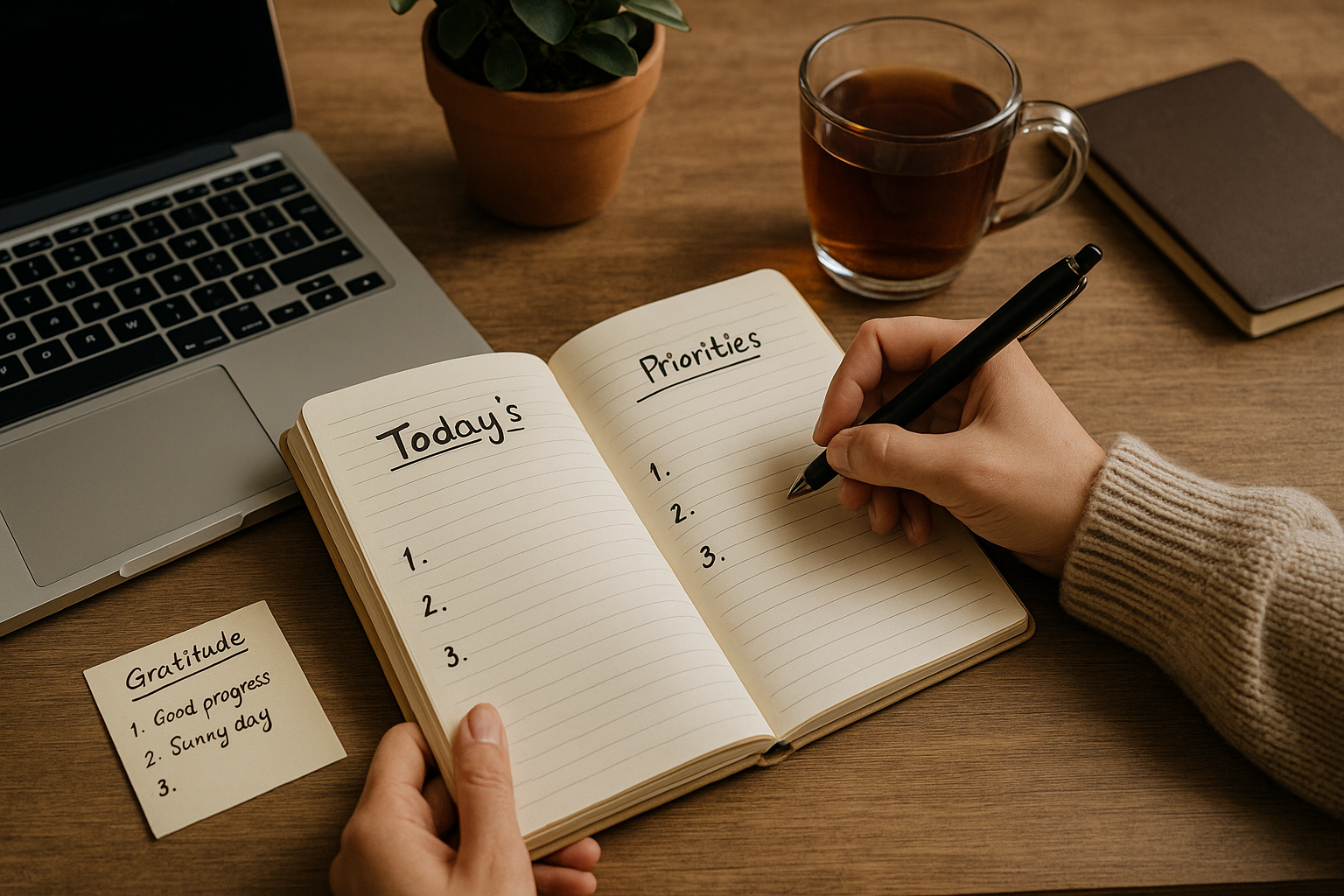In a world full of digital noise, endless to-do lists, and constant notifications, it’s easy to feel scattered and overwhelmed. That’s where journaling comes in — a simple yet powerful tool that can help you organize your thoughts, improve your focus, and enhance your productivity.
Whether you’ve never kept a journal before or want to use it more effectively, this guide will show you how to use journaling as a productivity superpower.
Why Journaling Works
Journaling is more than just writing about your day — it’s a method of reflection and planning that helps your brain process information more deeply. It creates space between your thoughts and your reactions, making it easier to think clearly and make better decisions.
Benefits of journaling for productivity:
- Clears mental clutter
- Boosts focus and motivation
- Helps prioritize goals
- Reduces stress and anxiety
- Tracks progress over time
1. Start with a Clear Purpose
There are many ways to journal — choose the style that best serves your goals. Your journal can be a place to plan, reflect, dream, or vent. But for productivity, it’s best to start with intention.
Ask yourself:
- Do I want to gain clarity?
- Am I tracking a goal or habit?
- Do I need to release stress?
Define your purpose, then design your journaling practice around it.
2. Use a Daily Structure
Consistency beats perfection. You don’t need to write for hours — just a few minutes a day can make a difference. Creating a simple daily format helps reduce resistance.
Sample daily structure:
- Morning: What are my 3 priorities today?
- Midday (optional): What’s going well? What’s distracting me?
- Evening: What did I accomplish? What can I improve tomorrow?
Short, focused entries keep journaling from becoming a chore.
3. Practice Brain Dumping
When your mind feels full, take five minutes to write down everything swirling in your head — no filter, no structure. This technique, called a “brain dump,” helps clear mental fog and reduce anxiety.
Benefits of brain dumping:
- Frees up mental space
- Helps uncover hidden stressors
- Clarifies what really matters
You can do this in the morning to start fresh, or at night to sleep better.
4. Track Habits and Progress
Journaling is an excellent place to monitor your habits, projects, and personal growth. Seeing your progress on paper creates momentum and motivation.
What to track:
- Daily habits (exercise, sleep, hydration)
- Task completion
- Milestones for long-term goals
- Energy and mood levels
Use symbols, bullet points, or charts if you prefer visuals.
5. Reflect with Purpose
Don’t just write — analyze. Once or twice a week, review what you’ve written. Look for patterns, lessons, and moments of insight. This reflection turns journaling from a record into a roadmap.
Reflection prompts:
- What tasks brought the most value this week?
- What distracted me the most?
- What would I do differently next time?
This builds self-awareness and better decision-making.
6. Include Gratitude and Wins
Productivity isn’t just about output — it’s also about mindset. Including gratitude in your journal helps shift focus from what’s lacking to what’s working.
Try this:
- List 3 things you’re grateful for
- Write one small win from the day
- Celebrate progress, no matter how small
Gratitude reduces stress and keeps motivation high.
7. Keep It Simple and Enjoyable
The best journaling practice is the one you’ll stick to. Don’t worry about grammar, handwriting, or perfection. Your journal is for you — not for anyone else.
Tips to keep it enjoyable:
- Use a notebook you like
- Write with your favorite pen
- Set a cozy atmosphere with music or tea
- Keep your journal in a visible place
You’re more likely to journal regularly if it feels rewarding.
Journaling Is a Tool — Not a Task
When used with purpose, journaling becomes one of the most powerful tools for boosting productivity and mental clarity. It gives you a moment to pause, think, and act with intention — instead of just reacting to the demands of your day.
You don’t need to write a novel. Start with a few lines. Make it yours. And watch how this simple habit can help you organize your mind, your time, and your life.
